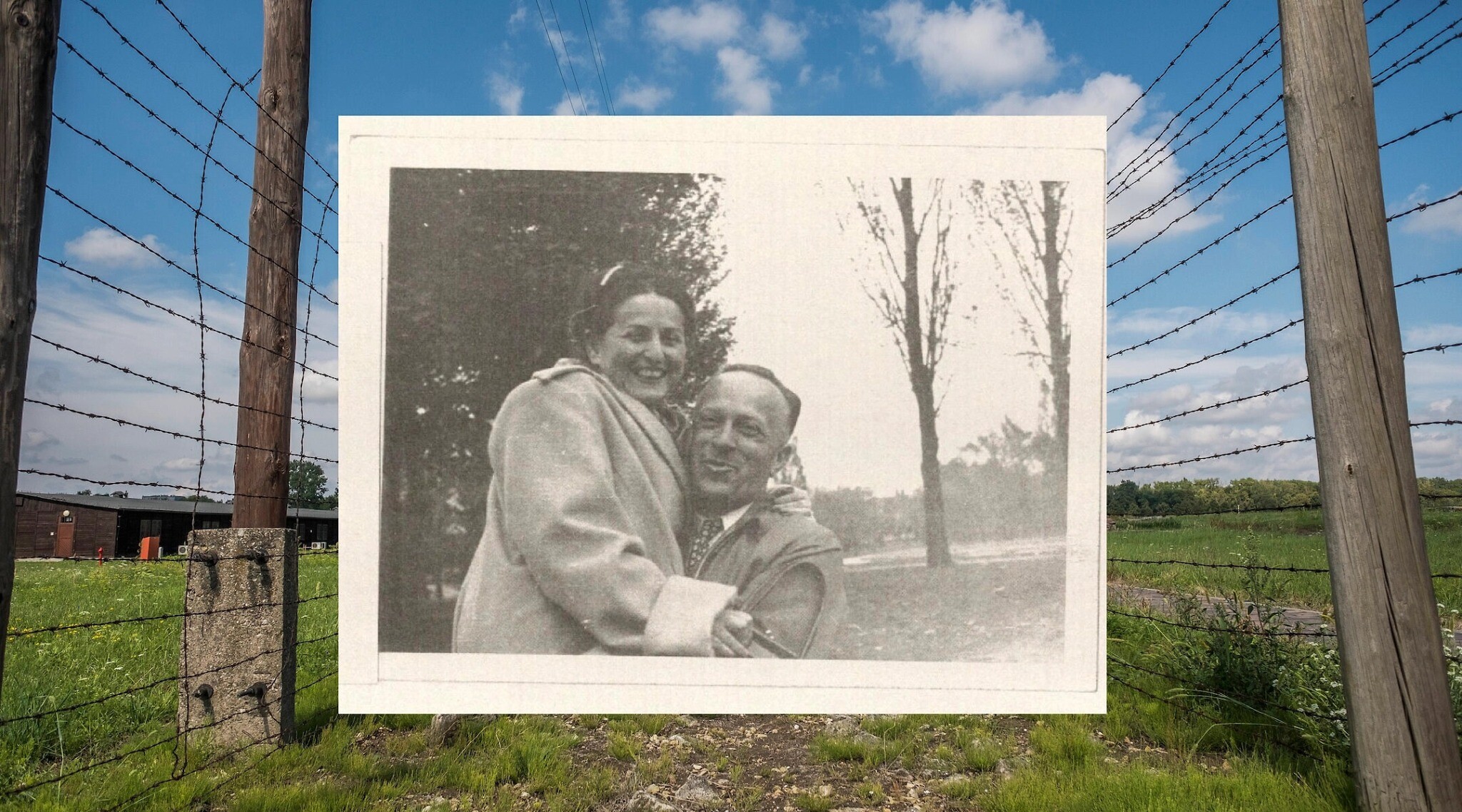
Janina Mehlberg, seen with her husband Henry Mehlberg, was a Jewish woman who posed as a Polish countess to intervene at Majdanek, the Nazi concentration camp in Lublin, Poland, during the Holocaust. (Courtesy: US Holocaust Memorial Museum/via JTA)
JTA — In December 1941, a petite, elegant woman left her home in Eastern Galicia, where she was known as the Jewish mathematician Janina Spinner Mehlberg.
Three days later, she arrived in Lublin — soon to be an epicenter of Nazi extermination in occupied Poland — with a new identity. She was now Countess Janina Suchodolska, a self-assured Polish aristocrat — and she would soon negotiate the release of thousands of prisoners from the Nazis and save thousands more through deliveries of food and medicine.
Beneath her masquerade as an aristocratic welfare official, Janina concealed that she was an officer in the underground Polish Home Army, where she in turn concealed that she was a Jew. This enigmatic character is the largely unknown heroine of “The Counterfeit Countess,” a new book by historians Elizabeth B. White and Joanna Sliwa.
Janina’s story was nearly lost to history, disclosed in an unpublished memoir that slipped through three pairs of hands before White and Sliwa embarked on corroborating it and researching their book.
After World War II, Janina and her husband Henry Mehlberg immigrated to the United States and settled in Chicago, where she taught mathematics at the Illinois Institute of Technology and he taught philosophy at the University of Chicago. She wrote her memoir shortly before her death in 1969.
Her husband translated the manuscript into English and tried unsuccessfully to publish it. Before his own death in 1979, he entrusted the package to Arthur Funk, a history professor at the University of Florida. Funk also sought in vain to interest publishers, and in 1989, gave the manuscript to White, who had a career investigating and prosecuting Nazi criminals with the US Department of Justice before serving as a historian at the United States Holocaust Memorial Museum.
“At that time, survivor memoirs and diaries were not frequently published,” Sliwa told the Jewish Telegraphic Agency. “The focus was on the perpetrators — on understanding how the Holocaust happened — and not on witnesses, because of questions about the reliability of survivor testimony.”
When White received the manuscript, she was a new mother busy at the DOJ, with neither the time nor the Polish language skills to conduct research in Poland. In 2007, Funk became the third custodian of Janina’s account to die without seeing it published.
White was haunted by a sense of responsibility and eventually connected with Sliwa, an expert on the Holocaust in Poland, forming the partnership that finally brought Janina’s story to the light of day.
(full article online)
Nearly lost to history, the incredible story of mathematician Janina Spinner Mehlberg is retold in 'The Counterfeit Countess' by historians Elizabeth B. White and Joanna Sliwa

www.timesofisrael.com

